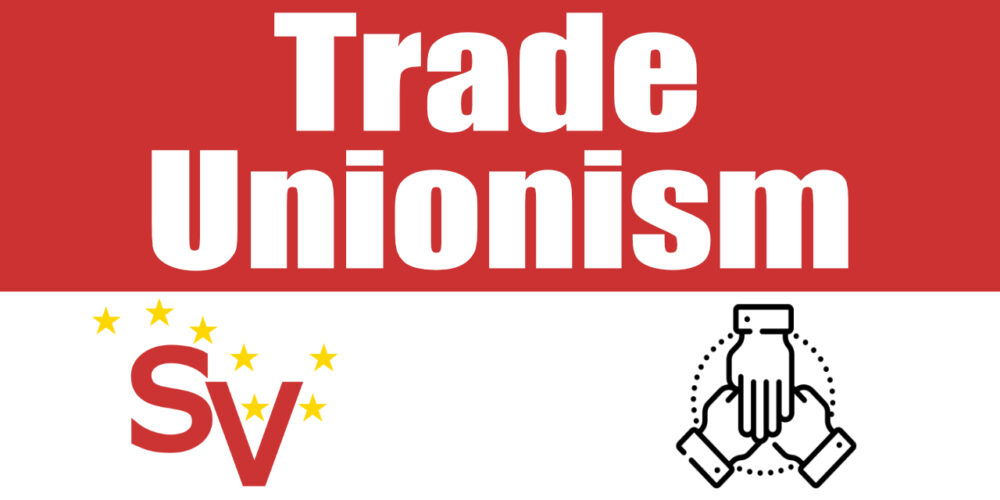The Trade Union Left Forum correctly calls on trade unions to become radical or redundant. This slogan contrasts the pivotal role unions can play, the potential they possess, against their declining power and relevance to many workers. But what is radical? Because as communists, and Leninists in particular, we know that the most left-sounding or radical-sounding slogan, statement or position is not actually necessarily the revolutionary, and correct, position to take.
In a recent article in Socialist Voice comrade Niall Cullinane reminded us, based on recent scientific studies and evidence, that workers value practical and immediate gains from unions and value union support on workplace problems and improvements on pay most. The article resurrected an apt quote from Lenin to remind us that we need to engage and meet workers where they are actually at not where we wish they were and bring them step-by-step towards greater political class consciousness.
“It is necessary to know at every moment how to find the particular link in the chain which must be grasped with all one’s strength in order to keep the whole chain in place and prepare to move on resolutely to the next link.”
– Lenin
Comrade Niall then finished his piece with a contemporised version of this Leninist position, “While communists should lead, they should not lead so far ahead that those they wish to lead remain too far behind.”
And so now we ask, in this context, what is genuinely the radical, revolutionary, and correct, positions for communists in trade unions to be taking? Well, first of all, groups of unionised workers are different and sectors of workers are different so it needs to be accepted that a position adopted by communists in one union is not necessarily the right position to take in another or in another sector of workers. This adds complexity to our work. However, as a guiding principle comrade Tom Redmond would always say “try come out of this struggle a stronger union, more organised”. This means dogmatically pursuing strikes, or any tactic, as a principle is not the right approach. And it can actually lead to mistakes being made that damage workers and their organisations. We’ve seen some very recent examples of limited industrial actions that actually left the union and the group of workers significantly weaker and in some cases effectively derecognised. Strikes, like any action, are a tactic to be used or not based on whether they will assist in winning the workers’ demands or making the collective of workers stronger and thus increasing their potential to win future demands. Rarely does a group of workers meet and say we want to take strike action. Instead, they will meet and say we want a better pay increases or we want pay ranges published, we need more staff or we want our overtime paid.
Arguably the most radical, and necessary, thing that unions and trade unionists can do at this low ebb of class consciousness is to listen to workers, be humble, discard immature dogmas, respect workers and allow workers, and members, take the lead in setting union agendas and deciding on union activity and priorities. Give guiding support and seek to develop unity of action and purpose based on the crystalised demands of workers. This might not sound radical but it appears abundantly lacking in today’s trade union movement, on the both the left and right. Unions seem so far removed from workers and their trials and tribulations in their offices or shop floors. And so, this might well be the link in the chain that we communists need to grasp and reconnect to, then be able to move on greater political consciousness and demands.
Thankfully there is a growing number of trade unionists, most of whom who are not communists or even necessarily politicised, adopting this approach and of engaging workers listening and providing the skills and tools for workers to lead their own campaigns or support existing campaigns. Contemporary union organising training, where a union is weak or seeking to strengthen, suggests in escalating an issue workers should seek to take the next smallest, easiest step for all to take. This means not jumping to a step that might be beyond the consciousness of the many. But nor is this lowest common denominator activity. It means always seeking to build consciousness while maintaining unity and strengthening the union organisation. Its building a chain link by link, strengthening structural power.
I think it is fair to ask are unions currently doing the most they can, deploying their staff and other resources, to engage and listen to workers? Are the many trade unionists employed or with release facilities really using their time to engage and listen to workers. Or are they busier trying to meet “powerful” people in order to gain influence or traction? Are they busier on grand vanity projects or personal profile-building campaigns? Are they busy servicing complex individual cases? Are they actively avoiding meeting workers because it’s been too long?
These are fair questions. Getting radical for unions at this point is rebuilding our organisation structure and expanding collective union structures into new areas and that needs, above all else, meeting and listening to workers. As sad as that is, that’s radical right here and right now.






